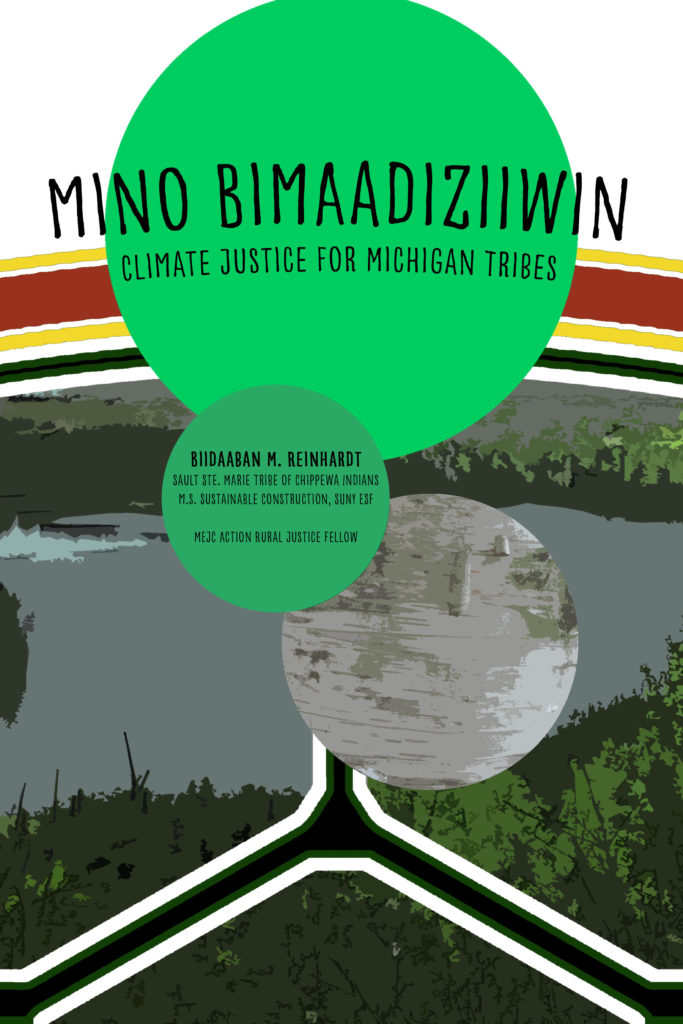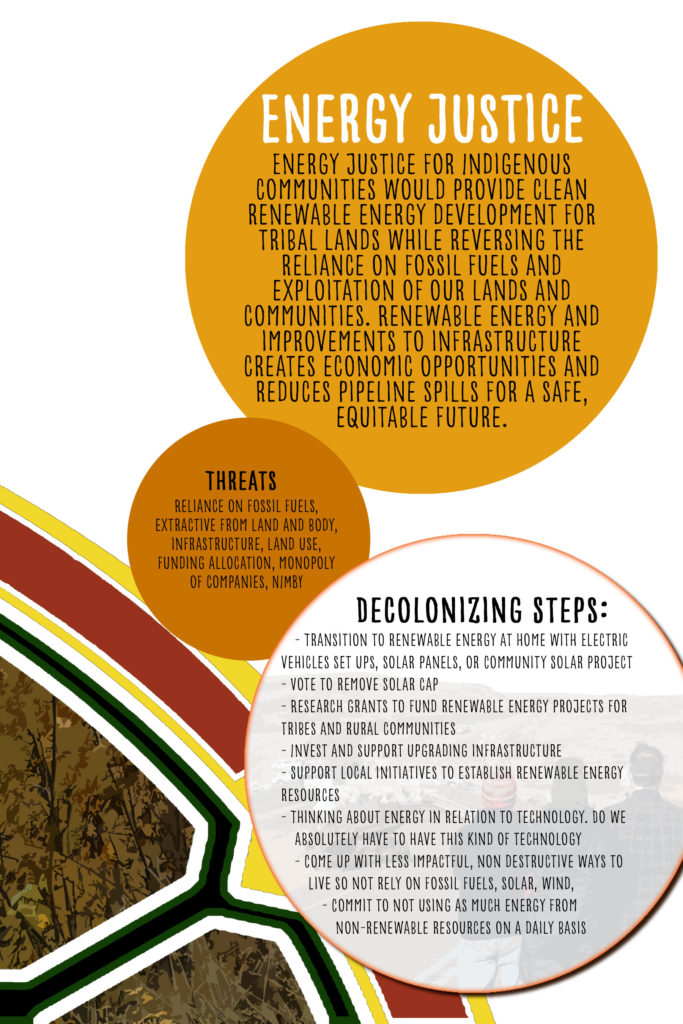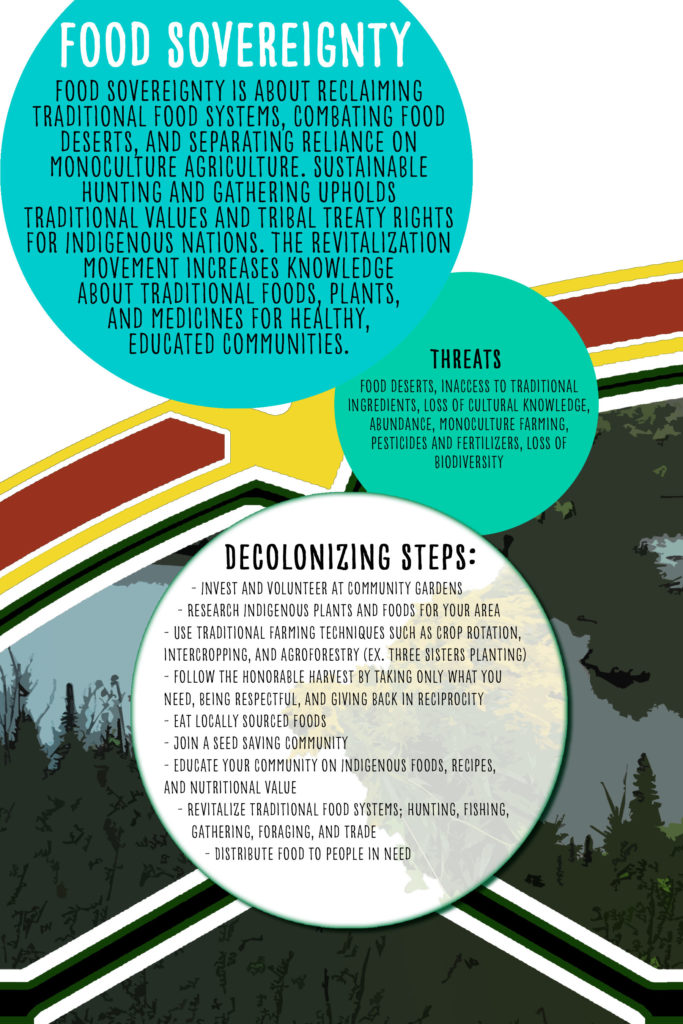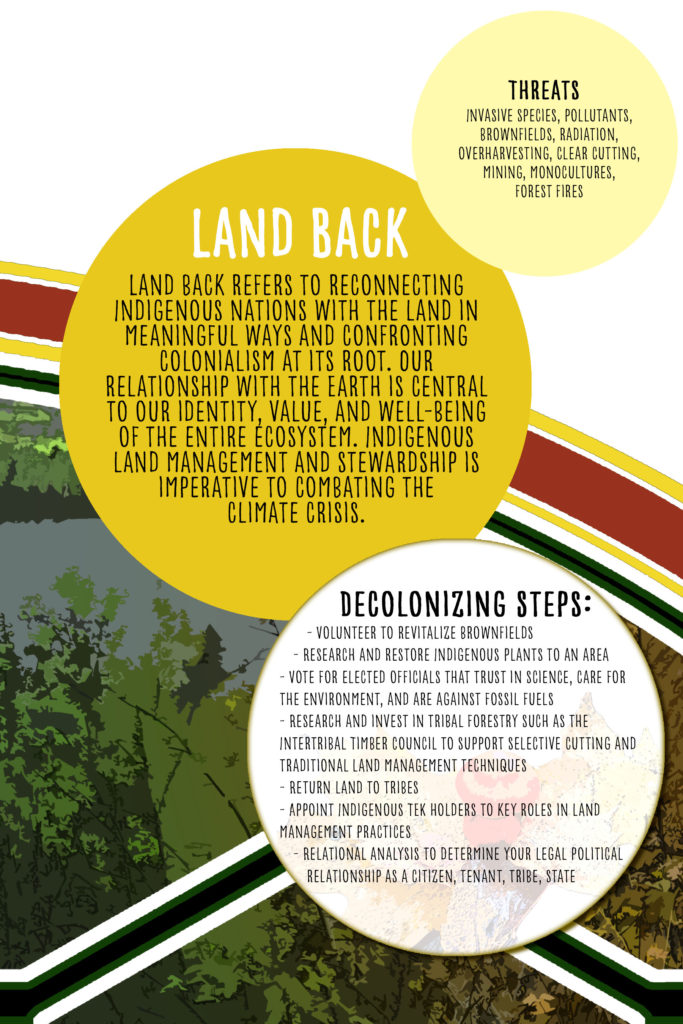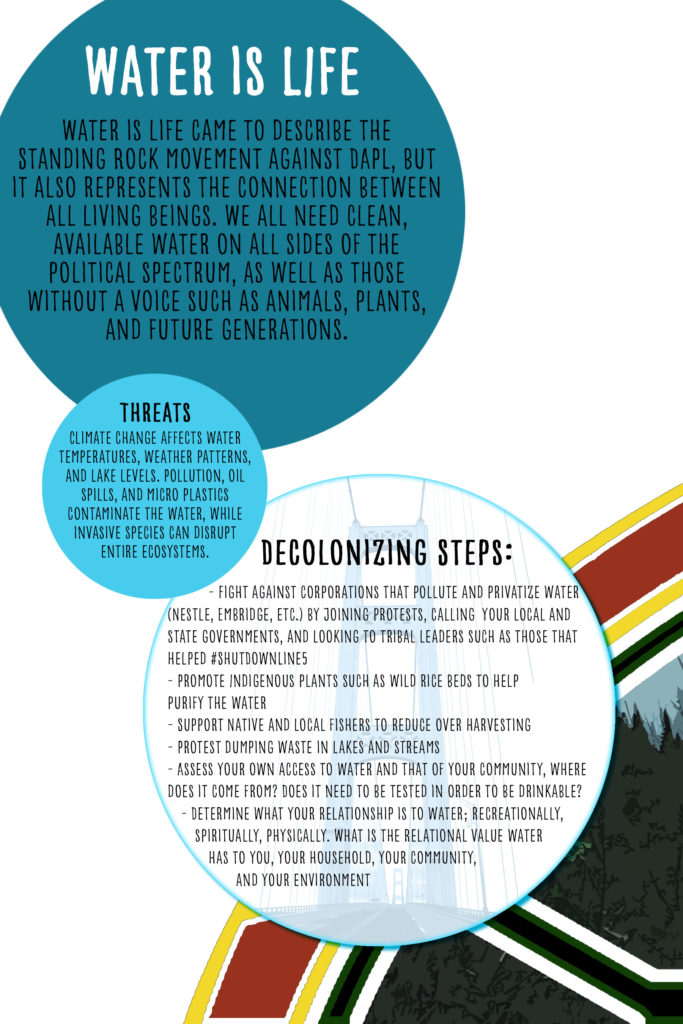
Mino Bimaadiziwin: Climate Justice for Michigan Tribes
By Biidaaban M. Reinhardt
Sault Ste. Marie Tribe of Chippewa Indians
M.S. Sustainable Construction, SUNY ESF
MEJC Action Rural Fellow 2020
Environmental justice from an Indigenous perspective dates back to the point of first contact with European settlers and follows a path of colonization into the present day. In a pre-colonial context, Anishinaabe people had no need for environmental justice as we know it today. We were taught to live in balance and harmony with the world around us by using the medicine wheel and seven grandfather teachings in order to live the good life, or mino bimaadiziwin. This land we stand on is Anishinaabe-aaking and is part of Turtle Island. In order to live, we have to strike a balance with the world around us and respect all our relations; the plants, animals, water, land, spirits, and humans. We know we are part of this land; it is not simply a resource for us to take from.
The process of colonization brutalized, disenfranchised, and pulled us away from that ideal balance into what we see in society today. Pollution, corruption, over-consumption, warfare, inequity, and injustice are all part of the ongoing epoch of colonization that we still reside in. The root cause of the issues that plague our environment, communities, and future generations stems from colonization and the forceful taking of these lands from the Indigenous peoples.
By knowing where these environmental problems originate we also know where to start finding solutions. We start by recentering ourselves, reestablishing balance within each individual person and in turn our surrounding community. This recentering is the first step in decolonizing which will move us from one point to the next along a continuum. Decolonizing is taking one step of a project at a time in order to change the world. This could be recycling clothing into other forms, substituting traditional foods for one of your meals a day, or simply educating yourself about the Indigenous peoples whose land you live on. When we each take individual action to make the world a better place, we are beginning the decolonizing work.
We all have a shared identity as Michiganders. We should all have a shared concern for the environmental injustices that are happening to various communities around the state. And most importantly we all have a shared responsibility to address these issues and create a better world for future generations. I invite you to join us in this work to recenter, rebalance, and reharmonize the human relationship with Mother Earth and all our relations.
Sources:
https://bioneers.org/mni-wichoni-water-is-life/https://stangoff.medium.com/the-politics-of-water-10a7e54afe01https://www.nicoa.org/the-importance-of-food-sovereignty/https://nativefoodalliance.org/http://4rsyouth.ca/land-back-what-do-we-mean/https://lakotalaw.org/news/2020-08-14/land-back-climate-justicehttp://www.honorearth.org/energy_justicehttps://www.mdpi.com/2071-1050/12/1/47
This project was sponsored by MEJC Action!, a charitable non-profit with 501(c)(4) status, in partnership with Iowa Citizens for Community Improvement, and sponsored by Allied Media Action Fund.
